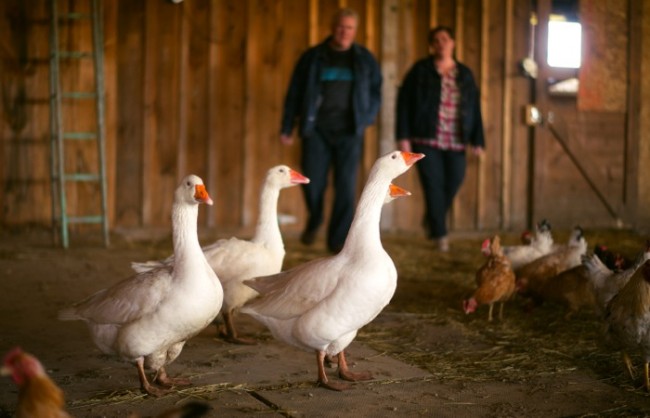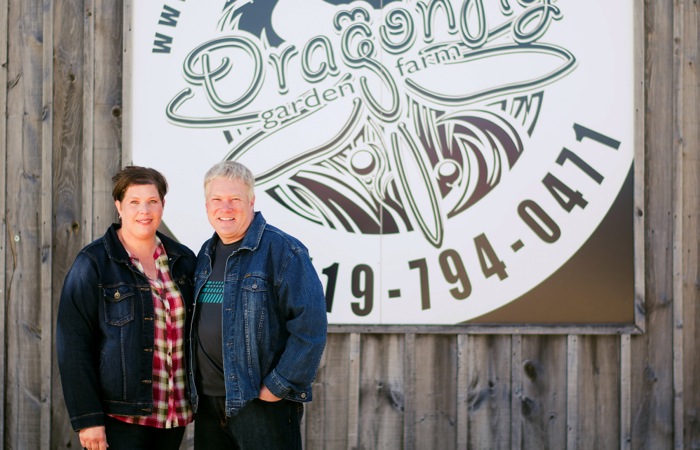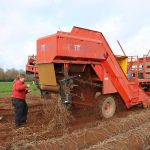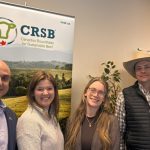While many dreamers might spend their whole lives thinking they’d like to farm but never do it, Cindy and Mike Wilhelm made it happen. In fact, only seven months after making the decision to farm, they were the proud owners of a 70-acre farm near Chatsworth, Ont. that they named Dragonfly Garden Farm.
Eight years later they have established a successful farm where they raise pastured beef, pork, chicken, turkeys, ducks and geese which they market themselves through an on-farm store and CSA program.
Read Also

Five reasons why you avoid farm bookkeeping
Bookkeeping for the farm business might not be anyone’s favourite chore, but staying on top of it can help your farm access the funds it needs to grow.
This is no small feat, given that neither Cindy nor Mike had any farming experience or agricultural education before making the leap.
They did, however, have many transferable skills. Mike is an auto mechanic, which has been handy for keeping their older farming equipment running.
Cindy meanwhile has a diploma in marketing, which has helped her establish a loyal customer base locally and in Toronto.
Other than that, what they didn’t know they figured out how or learned through self-education and first-hand experience. “I have a reference book on every type of livestock we have,” explains Cindy who grew up in the small town of Monkton. “I came up through the 4-H program where the motto is to learn by doing.”
Admittedly, this isn’t always an easy way to learn, says Cindy, who also keeps beehives on the farm. “The bees are painful teachers,” she says with a chuckle.
It’s the kind of remark that convinces you Cindy is made of the right stuff for farming.
Early on, the Wilhelms did take a two-day workshop from the Ecological Farmers of Ontario on soil ecology that was really valuable, says Cindy. Healthy soil is the foundation of the farm, she says.
Although they are not certified organic, they follow organic farming principles, she says. They always planned to farm organically but the cost of getting certified was too high. They would have had to pay a fee for each commodity, she explains. “It would be a paperwork and financial nightmare.”
Instead they encourage their customers to come to the farm to see for themselves how the animals are raised.
- More Country Guide: The road less travelled
“Our customers don’t demand that we be certified organic,” says Cindy. And since the Wilhelms don’t market outside of Ontario, it isn’t necessary to be certified organic, she says. What’s important to her customers is that the animals be pasture raised and treated humanely. Her customers believe meat from pasture-raised animals is superior to meat from confined animals, she says.
Two-thirds of the meat they produce is sold through a CSA (community-supported agriculture) program to clients in cities within a two-hour drive, including Toronto, Waterloo, London and Hamilton. CSA members get 20 to 40 pounds of meat delivered each month between June and November, either directly to their door or to a common pickup location such as a health food store (the less expensive option).
Members can also choose from a mix of available meats. Cindy and Mike are partnering with nine other farms who supply some of the meat such as lamb, bison, and turkey which they don’t raise themselves.
CSA members pay 50 per cent up front in May and the rest in August, which helps with the cash flow, adds Cindy.
The Wilhelms are now also offering cheese, eggs and vegetables produced by other farmers as well.

To ensure that partner farms are using acceptable farming practices, the Wilhelms visit each farm annually, do spot checks and have the farmers sign a partnership agreement that Cindy created to cover all the bases of sustainable farming practices.
About 15 per cent of their meat is sold locally through either their on-farm store or through area stores that specialize in local food.
- More Country Guide: From a modest start
After discovering that it was difficult to get access to organic feed in their area, they became dealers for Homestead Organics, which accounts for the remaining 10 per cent of their income.
For marketing, Cindy relies on the Dragonfly Farm Store website and an electronic newsletter that she produces through the Constant Contact direct email marketing platform. She has a database of 900 subscribers for her newsletter which she writes herself.
“The newsletter converts people from prospects to customers,” Cindy says. She developed the website with the help of a graphic designer.
This year they also have a new customer. The Farmers Kitchen Table will be using Dragonfly Garden Farm meats for chef-prepared meals delivered direct to customers’ homes in Kitchener, Waterloo, Guelph and Cambridge. Geared to those who want local, sustainable food, the company produces ready-to-eat, gluten-free meals.
Cindy’s goal is to eventually have sales of $1 million from a combination of their own produce and 20 partner farms. Small farms need to band together, she believes. They also need political clout. Among the obstacles to their growth are the caps on the number of laying hens and meat chickens and turkeys they can keep since they don’t own quota. (They are limited to 300 meat chickens, 100 laying hens and 50 turkeys.)
This past winter, Cindy invested her time in developing an e-commerce site on the farm store website to market the wealth of locally made artisanal food products. She took courses through an online business development program to gain the necessary skills. Currently she has 50 shelf-stable items such as barbecue sauce, jams, jellies, pickles and relishes in the store pantry. She is hoping to double that number in the near future.
All of these pantry items have to be made in a commercial kitchen and must meet labelling requirements, says Cindy.
The Wilhelms believe the market is there. But they can’t just wait for the market to come to them. So, while it’s true that 13 million people live in Ontario, 80 per cent of them are in large cities.
Says Cindy: “I believe we need to meet them where they are and make it easy for customers to access these incredible artisan products.”
So far, cash flow has been the biggest challenge of starting the farm, says Cindy. For the first several years every dollar they could spare was plowed back into the farm. Now with eight years behind them, that’s getting a little easier, she says, even though they continue to expand the operation. They are renting an additional 96 acres and this year they are adding a walk-in freezer while also increasing the size of the on-farm store. Down the road they would also like to add U-pick blueberries, raspberries and strawberries.
With their “can-do” attitude, business acumen and ability to seek out information they need, she and Mike believe they have laid the foundation for a successful farm business and made their dream of farming come true.
In the early years they both had off-farm jobs to keep them afloat. “It was like working two full-time jobs each,” she says. Now they both work full time only on the farm.
The amount of work involved in getting the farm established was also daunting, says Cindy. “I’m glad we did it, but I wouldn’t want to do it again,” she says, and then with a gleam in her eye, she chuckles some more.
















